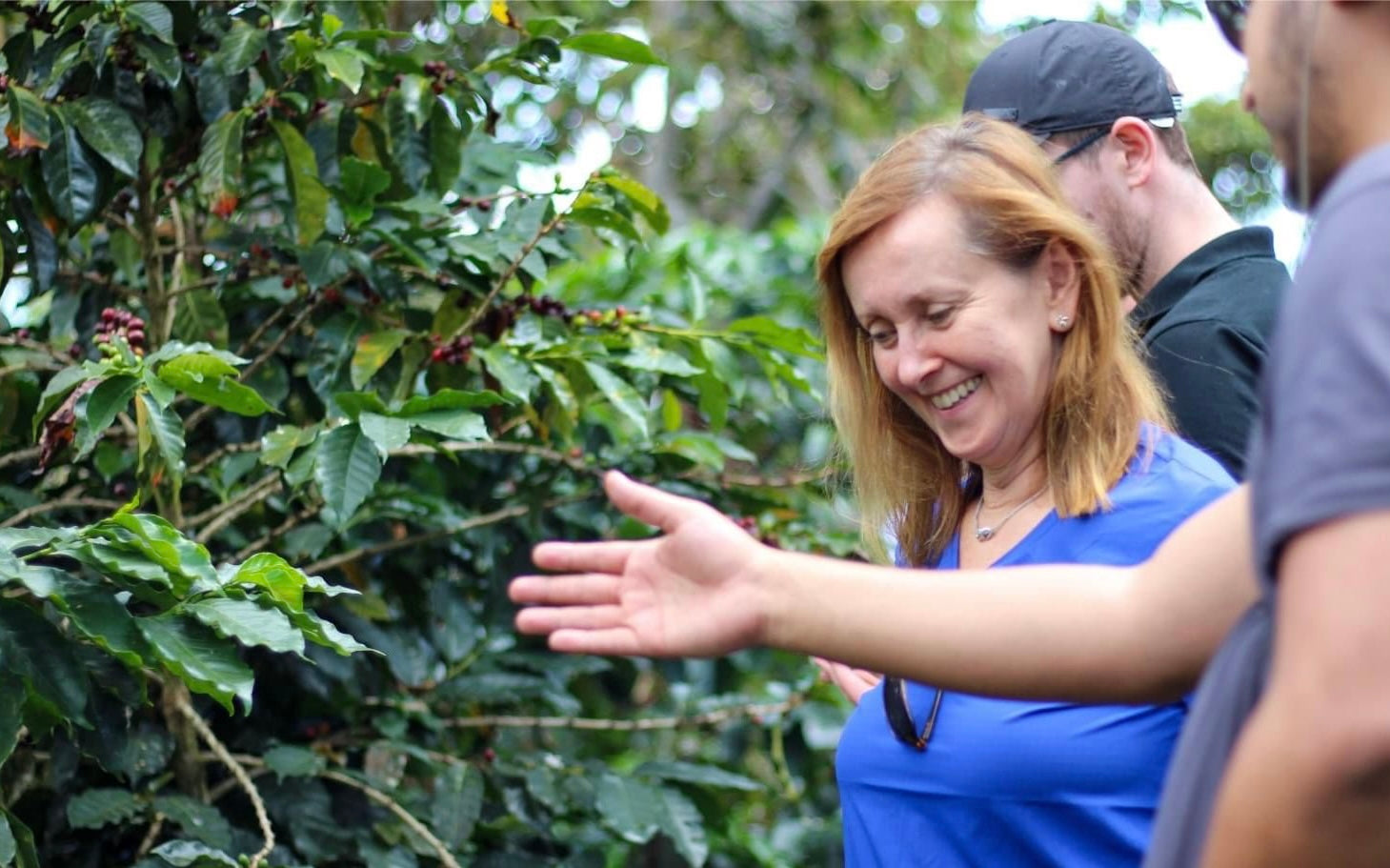
Origin Trip 2024 - Peru
Visiting a coffee origin country is always a privilege. It offers a firsthand look at the dedication and hard work of our partners, who ensure we have quality coffee to offer you, our customers. It also provides a chance to express our gratitude.
In August 2024, I had the opportunity to visit Peru, one of the world's largest producers of organic coffee. This commitment to sustainable practices has earned Peruvian coffee a strong reputation among ethical coffee drinkers. At FiXX, we source all our Organic coffee from Peru.
What is Peruvian Coffee?
Peruvian coffee is one of the best-kept secrets of South America. It offers a rich and diverse flavour profile. The coffee reflects the country's unique landscapes, from the high-altitude farms in the Andes to the lush rainforests of the Amazon.
Key Characteristics of Peruvian coffee:
- Flavour Profile: Bright, clean taste with a range of flavours, including citrus, chocolate, nuts, and mild sweetness, with balanced acidity that coffee lovers appreciate.
- High-Altitude Growing: Many of Peru's coffee farms are situated at altitudes between 1,200 and 2,000 meters. High-altitude coffee tends to grow more slowly, allowing the beans to develop more complex flavours.
- Varieties: Peru is primarily known for its Arabica coffee, which includes strains such as Typica, Bourbon, Caturra, and Catimor. Each of these varieties contributes to Peruvian coffee's diverse and rich flavour profile.
Regions:
Peru's coffee production is divided across various regions, but the most well-known are...
- Cajamarca and Amazonas (central highlands)
- Puno and Cusco (in the southern Andes).
- Junín (central highlands)
Why do We Visit Origins?
Each origin trip is unique. Even though we're working with the same product—coffee—there's always something new to learn. Conversations are shaped by local and global influences, making every visit a unique, insightful experience. But for me, there were two really striking factors on this trip.
- Local co-ops play a vital role in coffee-growing regions by supporting farmers while also helping us the buyers access high-quality coffee on the global market.
- The impact of climate change was very evident, but the farmers/co-ops are working hard to find solutions. One of the highlights of the trip was a visit to The Research Centre in Cruz de Chalpon (Cajamarca), a 10-hectare working farm/facility conducting essential research to improve the quality and sustainability of our coffee supply into the future. The programme is carried out in conjunction with World Coffee Research, of which FiXX is proud to be a member.

What are Small-Scale Farms & Cooperatives (co-ops)?
Most of Peru's coffee is produced by smallholder farmers. The farms we visited varied in size from 4 hectares to 12 hectares. To give some perspective, the average farm size in Ireland is 45 hectares. And even the highest farms in Ireland won't be that far up any hill or anything we consider a mountain.
Cooperatives play a crucial role in helping these farmers access markets, improve the quality of their crops, and ensure fair prices. They are a vital link between individual growers and the global coffee market.
What are the Benefits of being part of a Co-op?
Access to Markets and Fair Pricing
Co-ops enable smallholder farmers to pool their resources and production. By combining their harvests, co-ops can sell in larger volumes with consistent supply and secure better prices from green bean buyers.
Many cooperatives are certified by organic or other sustainable certification programs. Certifications help members earn higher premiums for their coffee by meeting social, environmental, and economic sustainability standards. Co-ops facilitate certification processes and ensure compliance with these standards. Certification brings better pricing for farmers and traceability for consumers.
Coffee Quality
Investment by the co-ops in communal infrastructure, such as processing mills, drying facilities, and quality control labs (which individual farmers would not be able to afford on their own) helps their members to produce consistently high-quality coffee. Farmers receive training on best practices, including organic farming techniques, pest and disease management, and post-harvest processing.
Sustainability and Environmental
Co-ops encourage the adoption of sustainable farming practices, such as agroforestry, shade-grown coffee, and organic cultivation, by providing the tools, seeds, and resources needed to transition to more sustainable methods. This not only protects the environment but also improves coffee yields over time.
Economic support
Co-ops provide access to microfinance, loans, or credit, helping farmers invest in their crops, purchase equipment, or survive lean periods between harvests. Profits from coffee sales are redistributed among members, ensuring that farmers receive their fair share of the income generated.
By investing in social projects, co-ops help the social development of their communities by funding projects like education, healthcare, and infrastructure improvements. These enhance the quality of life for not just members but also their families and the overall community.
Exporting
Cooperatives are the backbone of the coffee industry in Peru, offering smallholder farmers the collective strength and expertise needed to navigate the challenges of export logistics and global trade.
Prominent Peruvian Coffee Co-ops that we visited during our trip include Cenfrocafe, Aromas De Valle, Coinca (Compania Internacional del Cafe), Programa Familia (Comercio Amazonia), Gallito de Las Rocas (Co-op).

How is Climate Change Affecting Coffee Production?
Climate change poses significant challenges to coffee growing in Peru, as it does in many coffee-producing regions worldwide. Here's how climate change is affecting Peruvian coffee production:
Rising Temperatures
Coffee, especially Arabica, thrives in cooler, high-altitude climates, where temperatures typically range from 18°C to 24°C (64°F to 75°F). Rising temperatures are forcing farmers to move their coffee plantations to higher altitudes in search of cooler conditions. However, this solution is limited, as there's a finite amount of suitable land at higher elevations. As the lower altitudes become less viable, competition for arable land at higher elevations increases, putting pressure on both farmers and ecosystems.
Higher temperatures accelerate the ripening of coffee cherries, leading to a loss of flavour complexity. Warmer climates also encourage the spread of pests like the coffee borer beetle and diseases like coffee leaf rust (roya), reducing yields and quality.
Shifting Rainfall Patterns
Unpredictable rainfall and extended dry periods are becoming more common, affecting the growth cycle of coffee plants. Coffee requires consistent rainfall during the growing season. Too much or too little rain at the wrong time can negatively impact the crops.
Prolonged dry periods can lead to water shortages, stressing coffee plants and reducing yield. On the other hand, excessive rainfall can lead to soil erosion, landslides, and floods, particularly in the mountainous regions where coffee is grown. This not only damages crops but also washes away the nutrient-rich topsoil needed for healthy plant growth.
Global Efforts and Collaboration
International coffee organisations, NGOs, and governments are working together to support Peruvian coffee farmers. These efforts include funding for climate resilience projects, research into sustainable farming practices, and market access programs that ensure fair compensation for coffee growers. Collaboration with coffee buyers also plays a role in supporting Peruvian farmers by encouraging the purchase of high-quality, sustainably grown coffee.

How Can Companies Like FiXX Help?
Ethically sourced coffee remains a debated topic. Our recent research, conducted in September 2024 (asking 1000 people), shows that while 34% are somewhat willing to pay extra, just 8% are very inclined to do so, and 58% remain indifferent.
Nevertheless, FiXX sees potential to move the dial, recognising that its work as a coffee supplier is to educate customers on the importance of sustainable practices in coffee growing, and to safeguard a supply of quality coffee into the future. There needs to be a Global shift towards sustainable coffee by both suppliers and consumers. FiXX remains committed to ethical sourcing and importing UTZ-certified coffee from aligned partners in origins such as Peru.
And Finally, a Thank You!
Thanks to the farmers we visited. Don Anselmo Vasquez and Juan Jimenez who work with Cenfrocafe Co-Op. Segundo Aranda Abqro, who works with Gallito de Las Rocas (Co-op), and Srn Guzman, who heads up the farm at the research facility. All of whom shared their knowledge and showered us with Peruvian hospitality
The amazing coffee cupping/tasting sessions we had were facilitated by Aromas De Valle (Co-op), Gallito de Las Rocas (Co-op), and Coinca (Compania Internacional de Cafe).
Thank you, Peru ….. Keep doing what you do.
Thank you for reading. Anne





